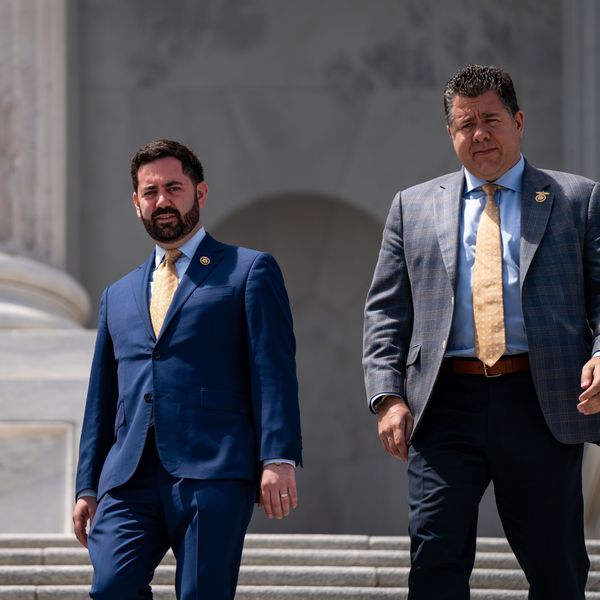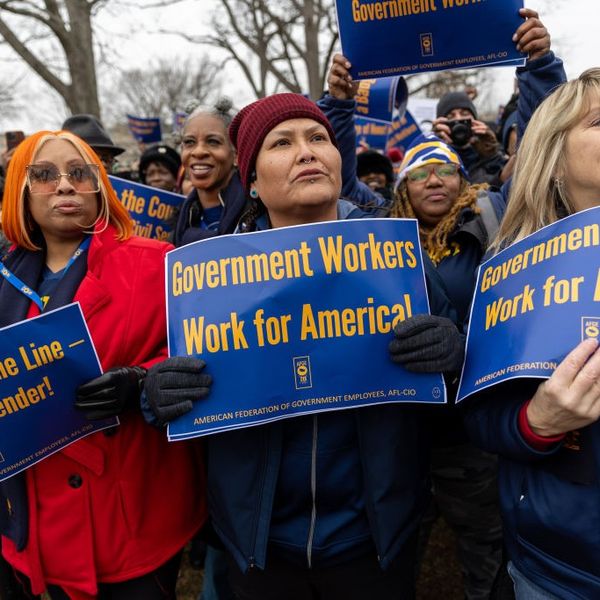"We are invisible to the majority in this country at this moment,"
said Ben Jealous, President of the NAACP, a key coalition partner for
One Nation. "Prosperity is decreasing while diversity is increasing.
We look at this and say we've got to tell the nation that job creation
is priority number one in America, so we can not only impact the
national debate but give the disempowered a sense of being part of
something bigger than themselves."
The event comes at the height of campaign season, after Congress has
left to return to their districts and when some critics have said this
coalition's time would be better spent in an electoral context, working
for candidates that share their message and concern. "It's not an
either/or thing," said Richard Trumka, President of the AFL-CIO, who
promised that his labor forces would bring up to 100,000 people to
Washington. "People within a 10-12 mile driving radius are coming to
DC. But we have neighborhood walks in over 300 sites outside of DC."
Indeed there will be a local component. In Los Angeles, a day of
action at LA City College will feature voter outreach to, they claim,
200,000 voters. NAACP President Jealous mentioned big rallies in New
Orleans and Seattle. "People are mobilizing and reuniting, around an
agenda of shared prosperity," he said.
Traditionally, these rallies on the left end up having a scattered
message. While organizers portrayed it firmly about showing a
progressive economic vision for the middle class, a flyer I received for
the event posited it as an anti-war march. "Every coalition partner
has agreed to come together for one nation for good jobs, justice and
education for all," Trumka said. Of course, that's pretty broad in and
of itself, encompassing the economy, small business, infrastructure,
civil and human rights, immigration, gay rights and education. But
Jealous wasn't concerned about this. "If people are inspired to stand
up and shout on their issues on which they feel passionate, if it's the
DREAM Act or jobs or peace, that's a beautiful thing."
The challenge of building a mass movement along a concept of a
progressive economic vision is the terrible toll that the economic
crisis and the Great Recession has taken on the psyche of America.
Velma Hart, the women who described her "exhaustion" with President Obama
at a town hall meeting, has become something of a touchstone for the
nation. With millions unemployed and despairing, how do you get them to
commit and engage, instead of retreating within and running from the frustrating freak show that our politics have become.
Each of the leaders I spoke with sounded a hopeful note. Trumka said that the labor rank and file has not been slow to embrace the election
or this new economic vision. "Our members are starting to get
excited," he said. "It's slow to start and then we pick things up."
Trumka described how labor would work just as intensely with the
unemployed this year as with their employed members. "We do it in a
conscientious concerted manner," he said. "Our organizers talk to
25-30,000 members a week, and help the unemployed find out what's
available to them and show that they have someone who can help."
Jealous, of the NAACP, was more philosophical. "If we want people to
stay engage, we have to raise our voices and come together," he said.
"People ask, if I go to One Nation, will I get a job. I say, if you
don't show up, it'll be harder to find a job. We have to tell the
people in power, whoever they are, that we must create jobs as priority
number one."
Jealous raised the importance of not retreating, and talking over
both the despair people feel, and the new economic vision that can keep
them going. He didn't sugar-coat the problems with creating a movement
at a time of recession. "The true cost and impact of recession has
become known. You have to now lift up the voices, give them a direction
and a goal. What's the next battle, what's the piece of geography.
The Ted Kennedy Service Act hasn't been funded, could create hundreds of
thousands of jobs. George Miller's bill would create 1 million jobs
with a Keynesian infusion into the states. We can only get these by
building a movement and ensuring country moves toward building a better
future."



